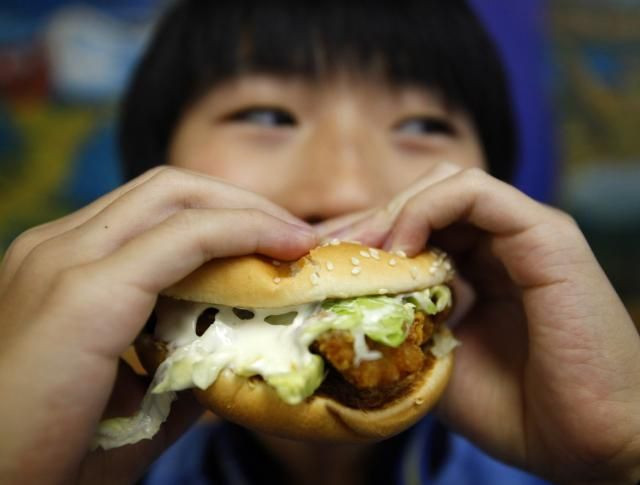Eating Slower Helps Most People Consume Less Calories But Does Not Affect The Overweight And Obese

Chewing food at a slow pace while taking pauses in between bites may only seem like proper etiquette, but minding our manners at the table could also help us with managing weight gain. A study out of the Department of Kinesiology at Texas Christian University found that people who eat at a slower rate are able to control energy intake and stay satisfied for a longer period of time.
According to the Centers for Disease Control and Prevention (CDC), calorie counting is one of the most important factors in effective weight management. Maintaining a healthy caloric balance depends on controlling the amount of calories consumed in relation to the amount of calories we use through normal body functions, routine activities, and exercise. Controlling the rate at which we consume calories could be equally important to the calorie-balancing act.
"Slowing the speed of eating may help to lower energy intake and suppress hunger levels, and may even enhance the enjoyment of a meal," said lead author Meena Shah, Ph.D., professor in the Department of Kinesiology at Texas Christian University. "Water consumption was higher during the slow compared to the fast eating condition by 27 percent in the normal weight and 33 percent in the overweight or obese group. The higher water intake during the slow eating condition probably caused stomach distention and may have affected food consumption.”
Dr. Shah and her colleagues from TCU’s Department of Kinesiology recruited a group of individuals considered to be in the average weight range and a second group of overweight or obese subjects. Each participant ate two meals: one meal was given to them with no timetable attached, and they were asked to eat slowly, take small bites, chew thoroughly, pause in between each bite, and put their spoon down between each bite. The second meal was given to the participants with a timetable, and they were asked to eat at a rapid pace, take big bites, chew quickly, take consecutive bites, and refrain from putting their spoon down between bites.
After analyzing the effect eating speed had on calorie consumption, feelings of hunger and fullness before and after fast-paced and slow-paced eating and the amount of water consumed during meals, researchers determined that normal-weight people were able to reduce caloric intake from meals consumed at a fast pace to meals consumed at a slow pace by 88 kcal. The overweight or obese group of participants was only able to reduce its caloric intake from fast-paced meals to slow-paced meals by 58 kcal.
"Slowing the speed of eating led to a significant reduction in energy intake in the normal-weight group, but not in the overweight or obese group. A lack of statistical significance in the overweight and obese group may be partly due to the fact that they consumed less food during both eating conditions compared to the normal-weight subjects," Dr. Shah explained. "It is possible that the overweight and obese subjects felt more self-conscious, and thus ate less during the study."
In spite of the statistical difference between the normal-weight group and the overweight or obese group during the course of this study, both groups reported feeling less hungry for a longer period of time following the slow meal compared to the fast meal. Both groups also increased the amount of water they consumed during the meal from nine ounces during the fast-pace meal to 12 ounces while eating the meal at a slow pace.
"In both groups, ratings of hunger were significantly lower at 60 minutes from when the meal began during the slow compared to the fast eating condition," added Dr. Shah. "These results indicate that greater hunger suppression among both groups could be expected from a meal that is consumed more slowly."
Between 1971 and 1974 the rate of obesity in the United States was estimated at 14.5 percent compared to 35.9 percent of the population between 2009 and 2010. As the obesity rate continues to climb, health care professionals are always on the lookout for effective weight loss strategies to help people reach a healthy caloric balance. The first step could be as easy as controlling the amount of time it takes us to scarf down a meal.
Source: Shah M, Copeland J, Dart L, Adams-Huet B, James A, Rhea D. “Slower Eating Speed Lowers Energy Intake in Normal-Weight but not Overweight/Obese Subjects.” Journal of the Academy of Nutrition and Dietetics. 2013.



























